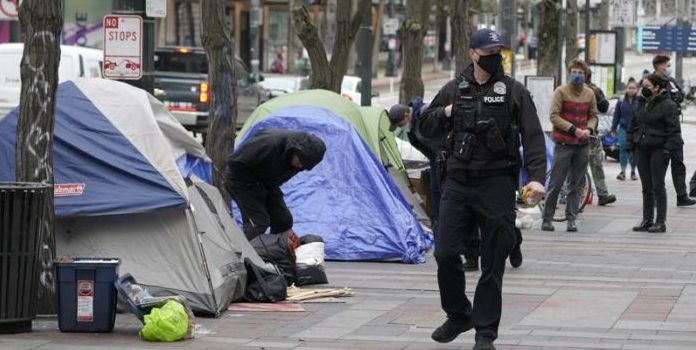(Headline USA) The Biden administration’s plan to end homelessness, which was released on Monday, included a push for “gender-affirming care.”
The plan, titled “All In: The Federal Strategic Plan to Prevent and End Homelessness,” included a number of programs the United States Interagency Council on Homelessness will start pushing in order to better serve the nation’s homeless population. The goal of these programs will be to address inequalities in homeless communities, and other “underserved” communities like minorities and the LGBT community, the plan said.
The Interagency Council should “encourage partnerships between providers of housing, aging and disability services, and health care … and create better resources for providers to connect program participants to culturally appropriate and gender-affirming housing resources,” the plan reads.
Specifically, in regards to “gender-affirming care,” the government should provide “processes whereby a person receives social recognition, value, and support for their gender identity and expression,” according to the report. Some of those policies include updating “dress code policies from a universal design perspective.”
“The key components to effective emergency shelter include culturally appropriate, gender-affirming, and specific, low-barrier access and housing-focused services aimed at rapid exits back to permanent housing,” the plan further explained.
The plan said that Biden’s government will be giving “increased focus” to the fact that homelessness “disproportionately impacts some groups and populations, particularly people of color, and especially black people.”
The plan also discouraged local municipalities from clearing encampments and “tent cities” without establishing “alternative housing options for the people living in them.”
“These ‘out of sight, out of mind’ policies can lead to lost belongings and identification which can set people back in their pathway to housing; breakdowns in connection with outreach teams, health care facilities, and housing providers; increased interactions with the criminal justice system; and significant traumatization,” the report said.

